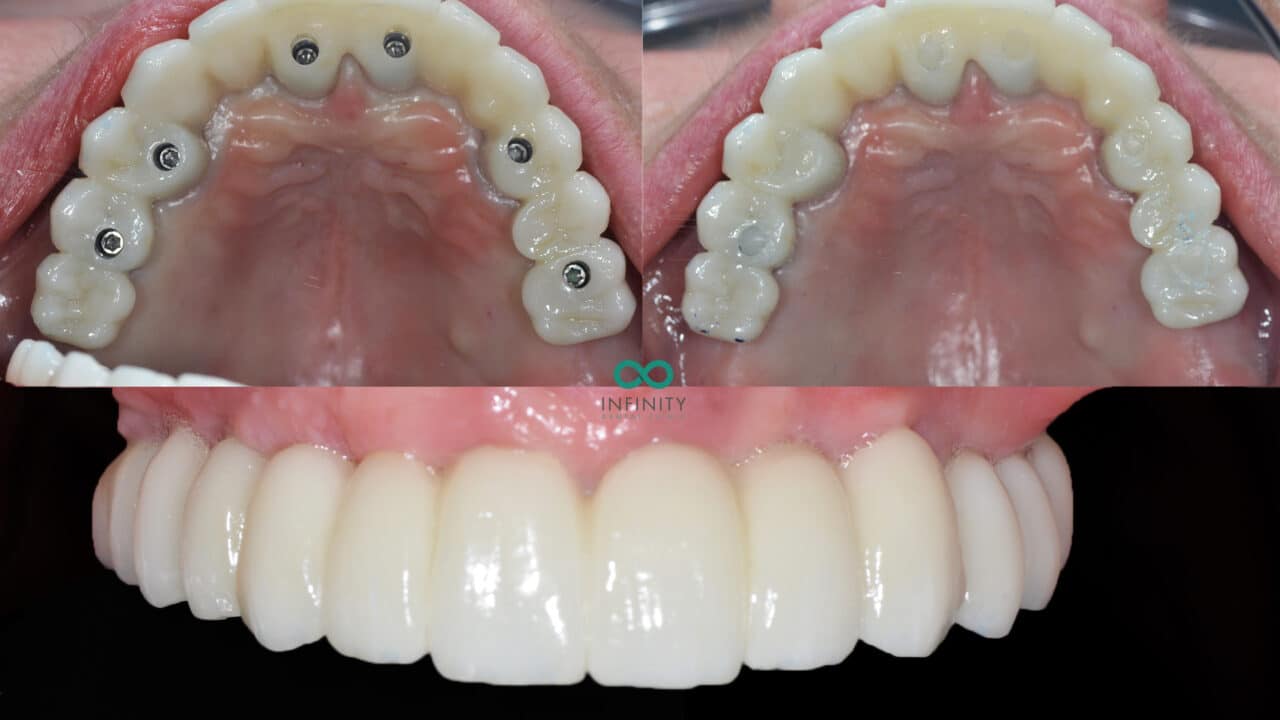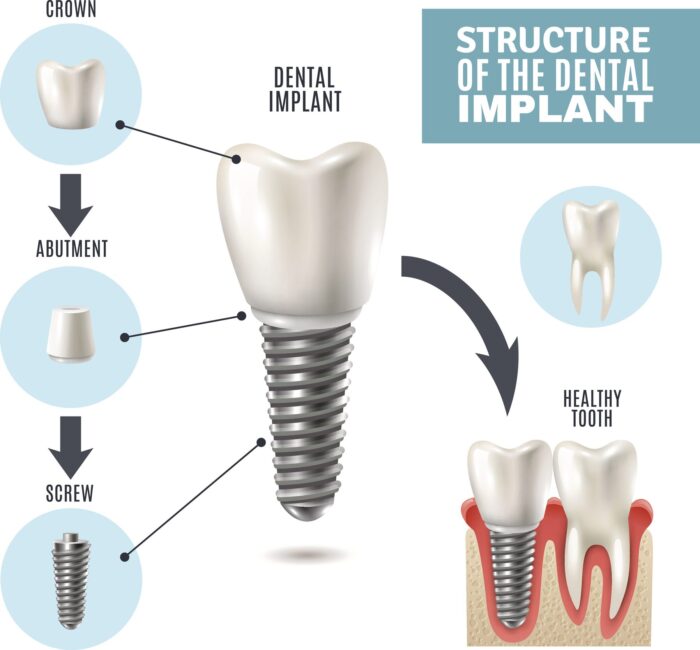Some Known Incorrect Statements About Dental Sense
Table of ContentsGetting The Dental Sense To WorkNot known Facts About Dental SenseThe Greatest Guide To Dental Sense9 Easy Facts About Dental Sense Explained
are medical gadgets operatively implanted right into the jaw to recover a person's capacity to eat or their appearance. They provide assistance for fabricated (fake) teeth, such as crowns, bridges, or dentures. When a tooth is lost as a result of injury or illness, a person can experience complications such as quick bone loss, faulty speech, or changes to eating patterns that lead to discomfort.Oral implant systems are composed of a dental implant body and oral implant joint and may additionally include a joint addiction screw. Dental implant vs bridge. The dental implant body is operatively inserted in the jawbone in area of the tooth's root. The dental implant abutment is typically affixed to the implant body by the joint addiction screw and expands via periodontals right into the mouth to support the affixed synthetic teeth
Cigarette smoking might influence the healing procedure and reduce the long-term success of the implant. The recovery procedure for the dental implant body may take a number of months or longer, during which time you typically have a short-lived abutment instead of the tooth. the dental implant treatment: Thoroughly adhere to the oral health instructions offered to you by your dental supplier.
See This Report about Dental Sense
Implant failing can result in the requirement for another operation to take care of or change the dental implant system. Restores the capability to eat Restores cosmetic appearance Assists maintain the jawbone from reducing as a result of bone loss Maintains the health of the surrounding bone and periodontals Assists maintain surrounding (neighboring) teeth secure Enhances quality of life Damage to surrounding natural teeth throughout dental implant positioning Injury to the surrounding cells throughout surgical procedure, such as sinus perforation Injury during surgery (for instance, crack of surrounding jawbone) Inadequate function, such as seeming like the teeth do not bite together normally A sensation that the tooth hangs or turning in area resulting from a joint screw loosening up Implant body failing (looseness of the dental implant body) because of systemic infection, which may be most likely in clients with uncontrolled diabetes due to local infection in bone and gums sustaining the dental implant body because of delayed recovery, which might be more probable in individuals that smoke Trouble cleansing the periodontals around the implant, causing inadequate oral hygiene Untreated gum condition Post-surgical tingling due to nerve impingement or damages Constantly inform healthcare carriers and imaging professionals that you have oral implants before any kind of magnetic vibration imaging (MRI) or x-ray procedures.
FDA is not mindful of any type of unfavorable events reported for MRI or x-ray treatments with dental implants. Oral implants systems are usually made of products that comply with international agreement requirements of the International Organization for Standardization (ISO) or ASTM International. These criteria have details of what makes a safe product.

A dental implant is a structure that replaces a missing out on tooth. With screw-like tools, the surgeon inserts an implant into the jawbone, and it acts as a support for a synthetic tooth, called a crown.
5 Easy Facts About Dental Sense Shown
Some individuals are not eligible for dental implant surgery. It is for oral specialists to operate on people with: intense illnessuncontrollable metabolic diseasebone or soft cells illness or infectionIf these issues are resolved, an individual can have the surgical treatment. In, dental surgeons avoid from operating people with: If individuals with any of the above undergo oral implant surgical procedure, there is a greater danger of the implant falling short.

Dental implant surgery is a customized process. Give you time to heal. Attach the post and last crown, bridge or go right here denture.
Next off, your surgeon will meticulously position the oral implant into your jaw. If your dental implant is near the front of your mouth, your dental practitioner will make a short-lived tooth for you to put on until you heal.
Our Dental Sense Diaries
Throughout the recovery stage, your jawbone ought to fuse to the dental implant. This process can take anywhere from three to 9 months.
Once your implant heals, your dental practitioner can attach the joint (tiny port blog post) and your final reconstruction (crown, bridge or denture). This usually takes about one hour to complete and may need a second small surgery. You should not really feel any kind of pain throughout your oral implant procedure since your supplier will use medicine to numb your gums.
Comments on “What Does Dental Sense Do?”